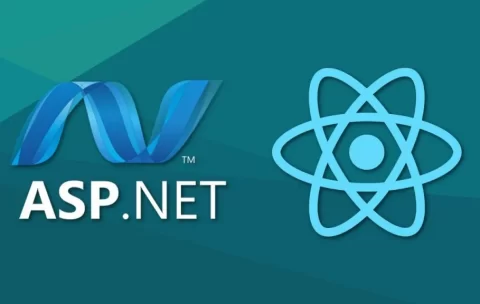Filter by Topic
Filter by Vendor
ISO 22301 Lead Implementer
Disasters have various impacts in organizations. Disasters can result from …
What you'll learn
Explain the fundamental concepts and principles of a business continuity management system (BCMS) based on ISO 22301
Interpret the ISO 22301 requirements for a BCMS from the perspective of an implementer
Initiate and plan the implementation of a BCMS based on ISO 22301
Apply best practices to support the ongoing effectiveness and improvement of the BCMS based on ISO 22301
Interpret the requirements for an ISO 22301 certification audit
What you'll learn
Explain the fundamental concepts and principles of a business continuity management system (BCMS) based on ISO 22301
Interpret the ISO 22301 requirements for a BCMS from the perspective of an auditor
Evaluate the BCMS conformity to ISO 22301 requirements, in accordance with the fundamental audit concepts and principles
Plan, conduct, and close an ISO 22301 compliance audit, in accordance with ISO/IEC 17021-1 requirements, ISO 19011 guidelines, and other best practices of auditing
Manage an ISO 22301 audit program
What you'll learn
State an understanding of AWS cloud security based on the CIA triad.
Create and analyze authentication and authorizations with IAM.
Manage and provision accounts on AWS with appropriate AWS services.
Identify how to manage secrets using AWS services.
Monitor sensitive information and protect data via encryption and access controls.
Identify AWS services that address attacks from external sources.
Monitor, generate, and collect logs.
Identify indicators of security incidents.
Identify how to investigate threats and mitigate using AWS services.
AWS Cloud Essentials for Business Leaders
In this course, you will learn the fundamental concepts of …
What you'll learn
Explain the role of information technology (IT) in an organization for business transformation
Explain the customer value proposition for using the cloud across industries
Define key characteristics of cloud computing
Explain the cloud business model
Identify key security practices of cloud computing
Frame the cloud business value using the Cloud Value Framework
What you'll learn
Analyze a monolithic application architecture to determine logical or programmatic break points where the application can be broken up across different AWS services
Apply Twelve-Factor Application manifesto concepts and steps while migrating from a monolithic architecture
Recommend the appropriate AWS services to develop a microservices based cloud-native application
Use the AWS API, CLI, and SDKs to monitor and manage AWS services
Migrate a monolithic application to a microservices application using the 6 Rs of migration
Explain the SysOps and DevOps interdependencies necessary to deploy a microservices application in AWS
.Net Secure Coding Camp (TT8320-N)
Discover the cutting-edge of cybersecurity and elevate your skills as …
What you'll learn
<b>Understanding Cybersecurity Concepts:</b> Gain a solid foundation in cybersecurity principles, the evolving threat landscape, and the language of the industry to better identify and address security issues in .NET applications.
<b>Ethical Bug Hunting Techniques:</b> Learn safe and appropriate methods for hunting bugs, ensuring responsible and ethical practices while working to uncover and address vulnerabilities in your applications.
<b>Web Application Security:</b> Master the skills required to analyze, identify, and mitigate vulnerabilities in web applications, following best practices and guidelines from organizations such as OWASP, WASC, CWE, and CERT Secure Coding Standard.
<b>Utilizing Industry-Standard Tools and Frameworks:</b> Acquire hands-on experience with widely used tools and frameworks, such as Visual Studio and .NET Cryptography, to effectively and efficiently secure your applications.
<b>Improved Problem Solving and Debugging:</b> Enhance your ability to identify, analyze, and resolve security issues in your applications through real-world case studies, labs, and expert instruction.
<b>Defensive Programming Techniques:</b> Learn and apply defensive programming techniques like securing trust boundaries, input validation, and proper exception handling to create more robust and secure .NET applications.
<b>Cryptography in .NET:</b> Develop a deep understanding of .NET cryptographic services, hash algorithms, symmetric and asymmetric encryption, and gain hands-on experience with a cryptography wrapper for .NET.
<b>Secure Software Development Processes:</b> Gain insight into secure software development processes, including the concept of "shifting left" and the implementation of secure design principles, enabling you to create safer and more reliable .NET applications.
ASP.Net Core MVC Web Applications (20486)
C# Web Developer / Developing ASP.Net Core MVC Web Applications …
What you'll learn
<b>Design and Implement Web Applications:</b> Confidently plan and construct ASP.Net Core MVC web applications, ensuring a solid understanding of the interplay between models, controllers, and views, which forms the foundation of robust web application architecture.
<b>Write and Deploy Secure Code:</b> Write secure ASP.Net code with an emphasis on authentication and authorization strategies. Participants will be capable of crafting applications that not only perform efficiently but also adhere to best practices in security, protecting data integrity and user privacy.
<b>Apply Advanced C# Features:</b> Utilize the advanced features of C# effectively, such as asynchronous programming with async/await, leveraging tuples and records for more expressive code, and implementing nullability features to improve code safety and reliability.
<b>Integrate Entity Framework Core:</b> Harness the power of Entity Framework Core for data-driven applications, enabling smooth interaction with databases and the ability to perform CRUD operations seamlessly within web applications.
<b>Develop and Consume Web APIs:</b> Create RESTful Web APIs using ASP.Net Core and consume them from both server-side and client-side code, facilitating communication between different software applications and services in a distributed environment.
<b>Troubleshoot and Optimize Web Applications:</b> Apply testing methodologies to isolate and resolve issues in MVC components, implement exception handling strategies for graceful failure management, and use logging to monitor application health, thus ensuring applications are not only functional but also resilient and maintainable.





